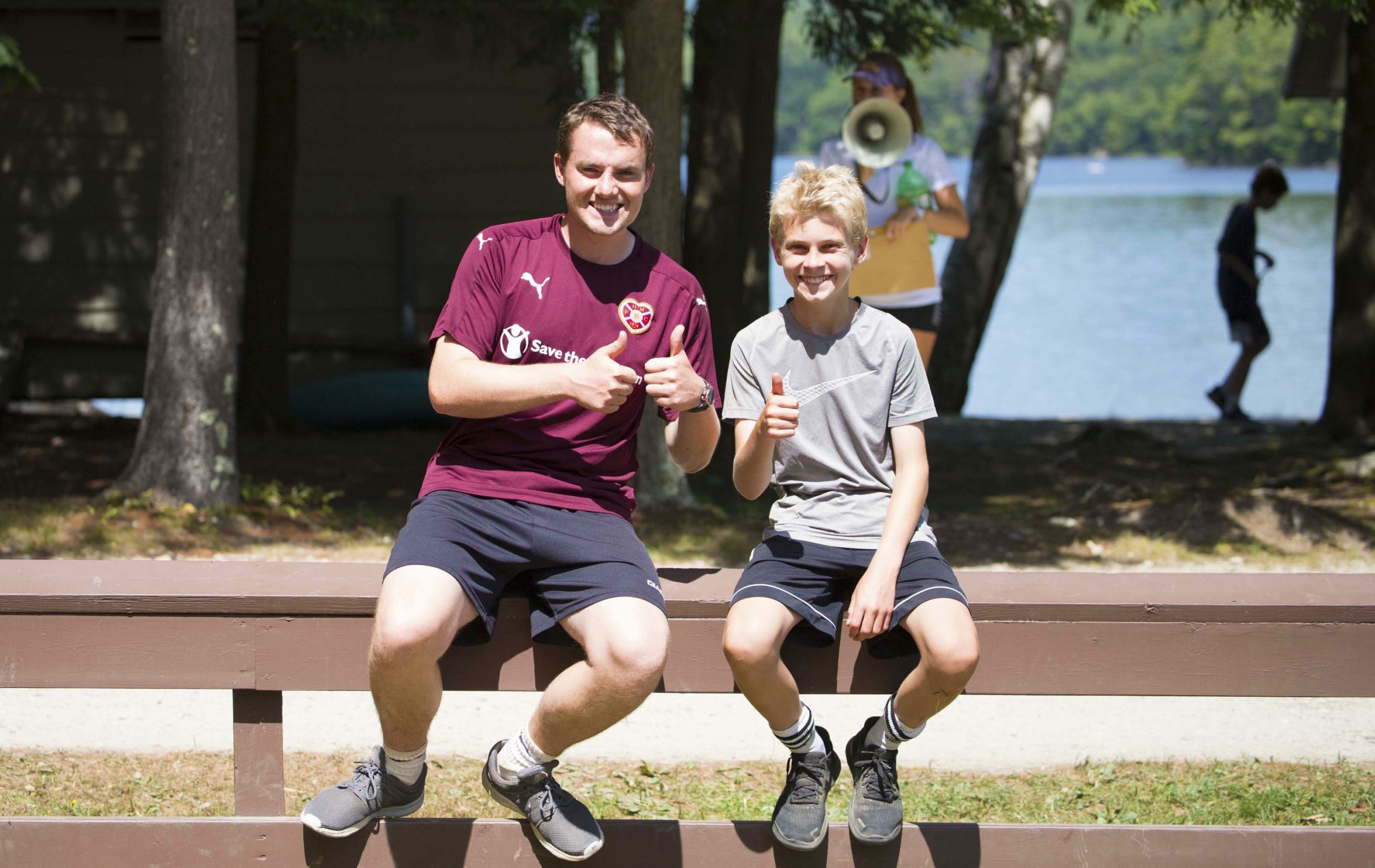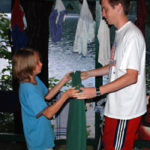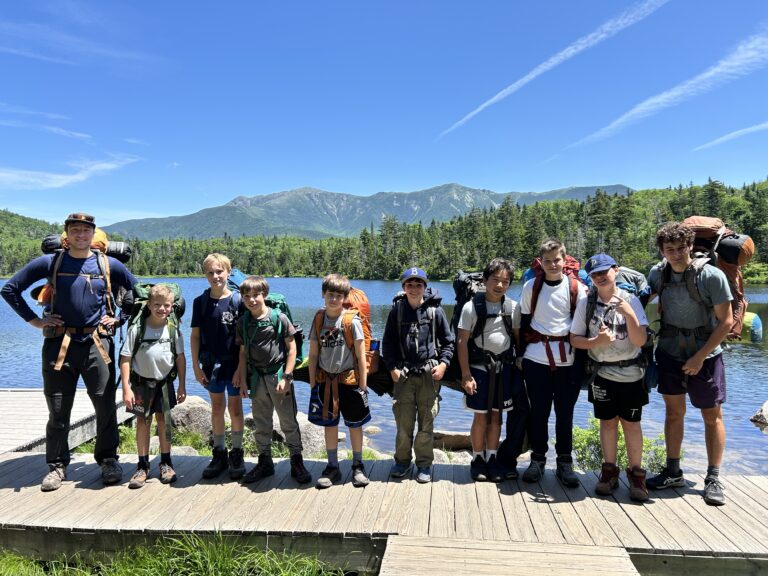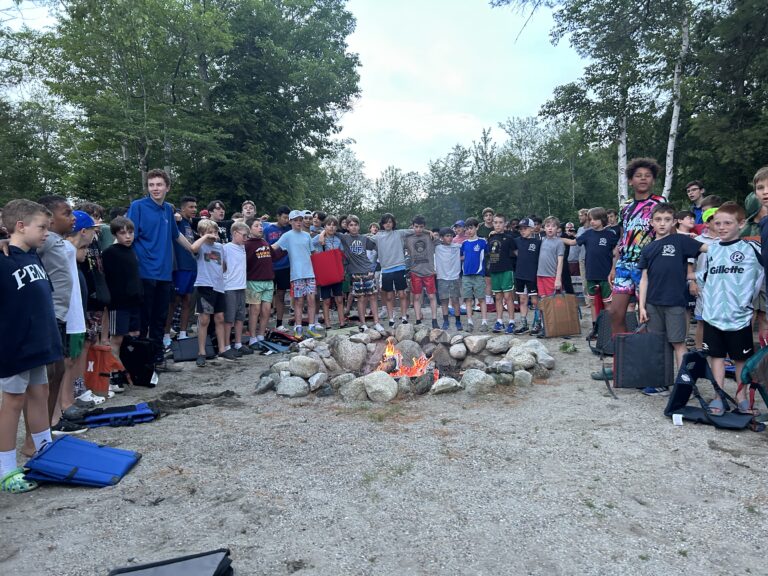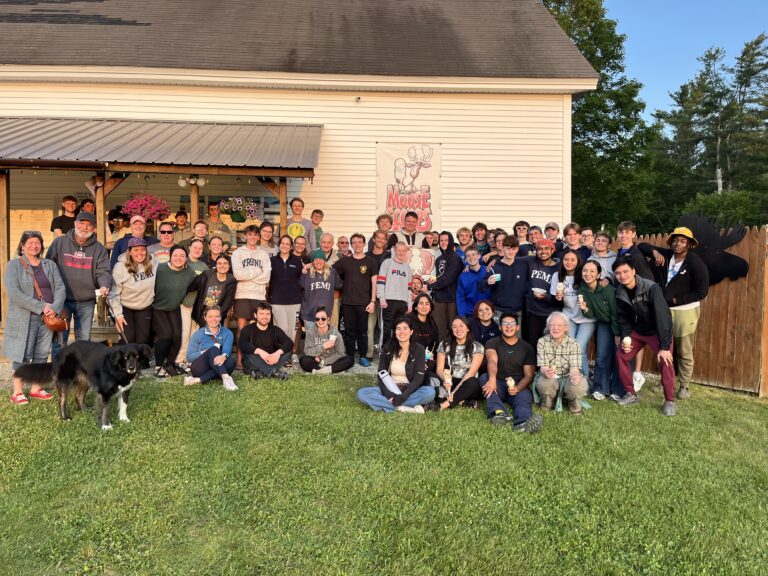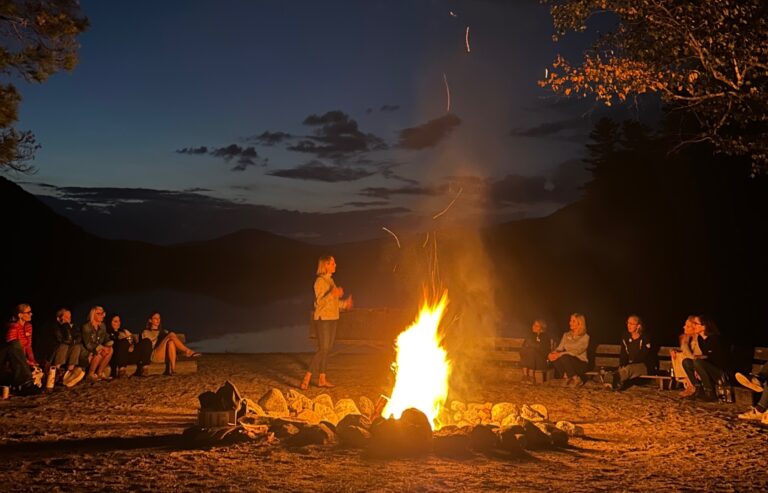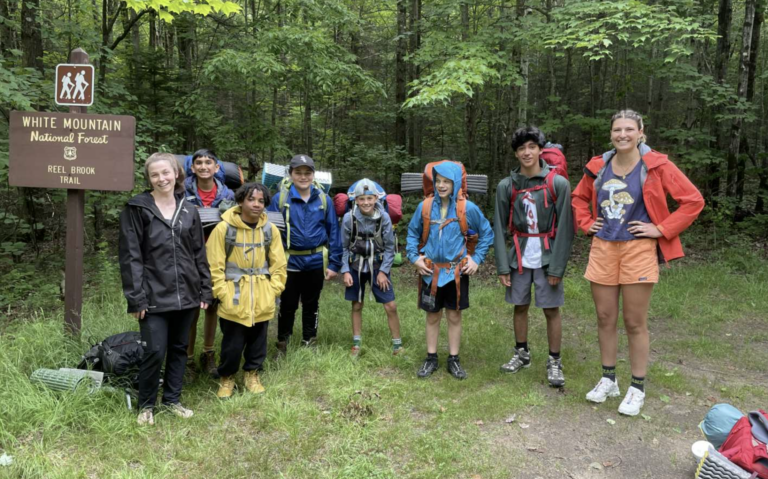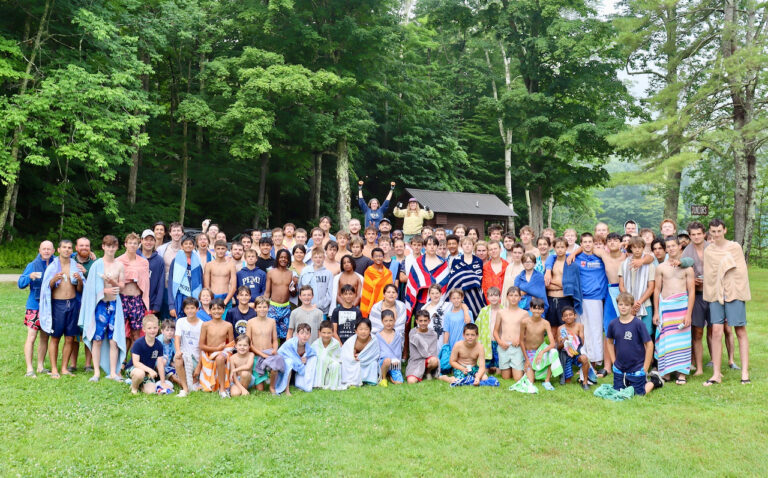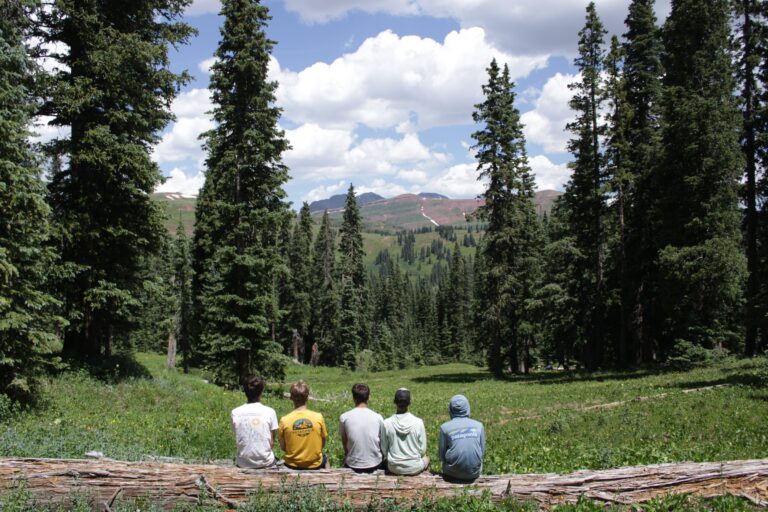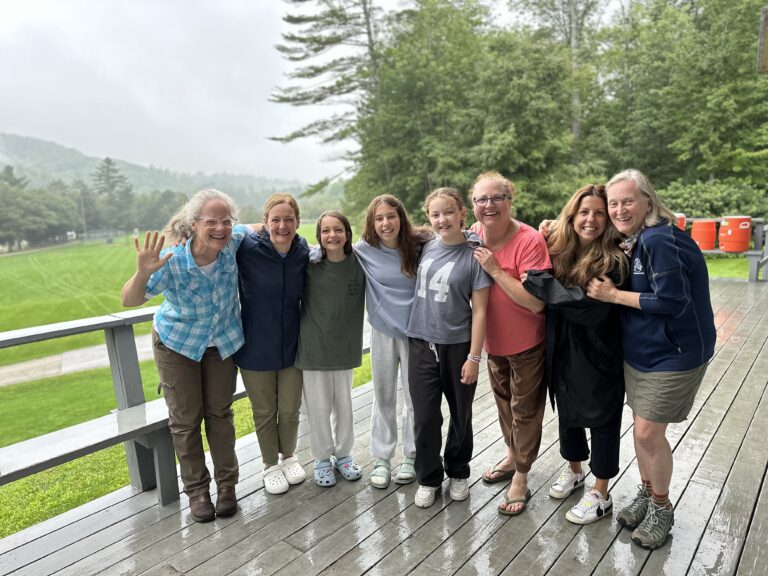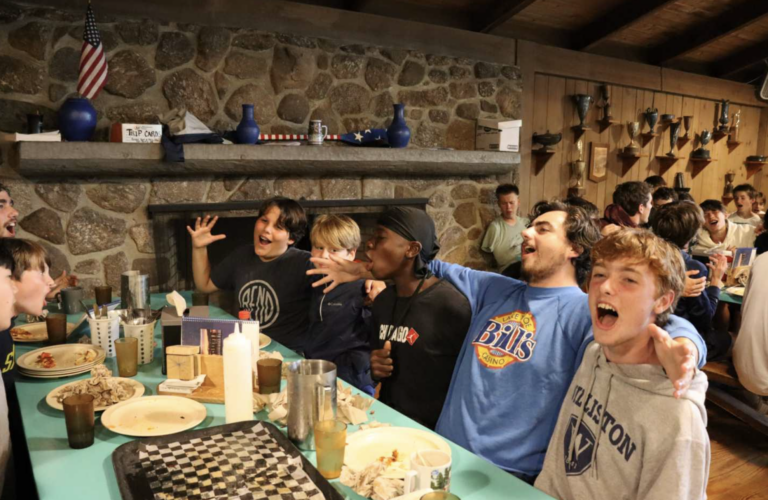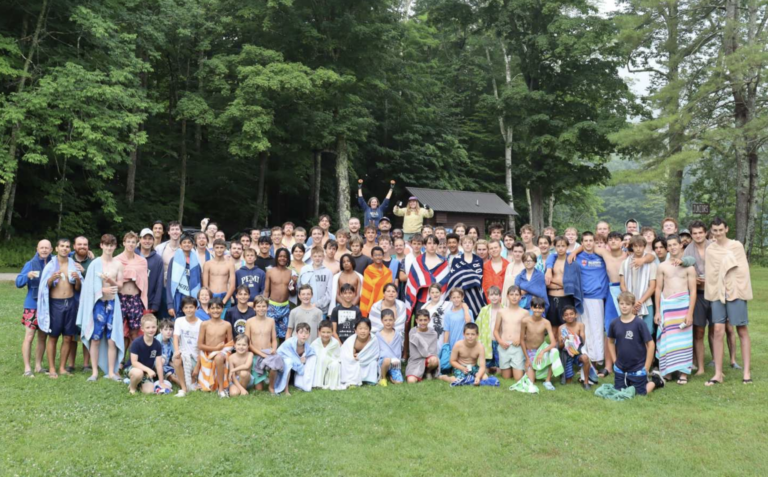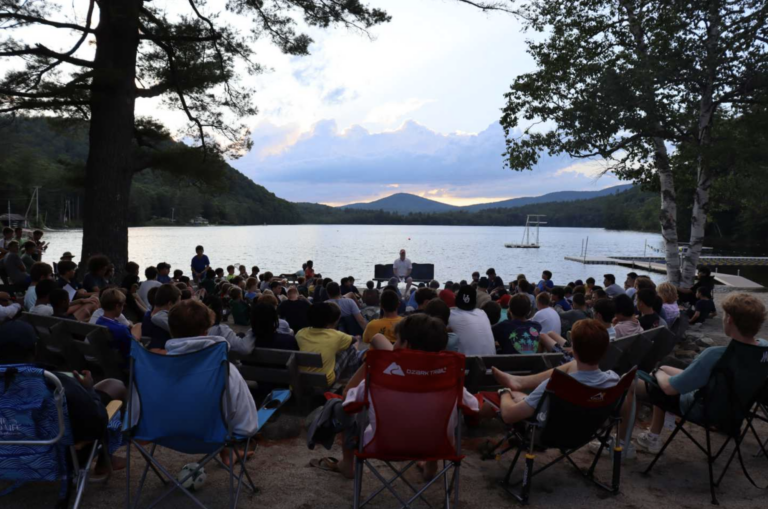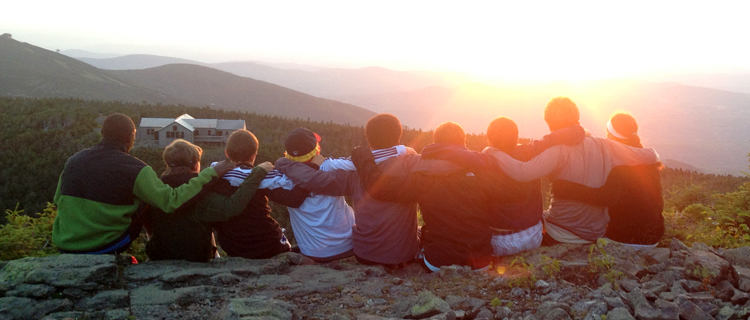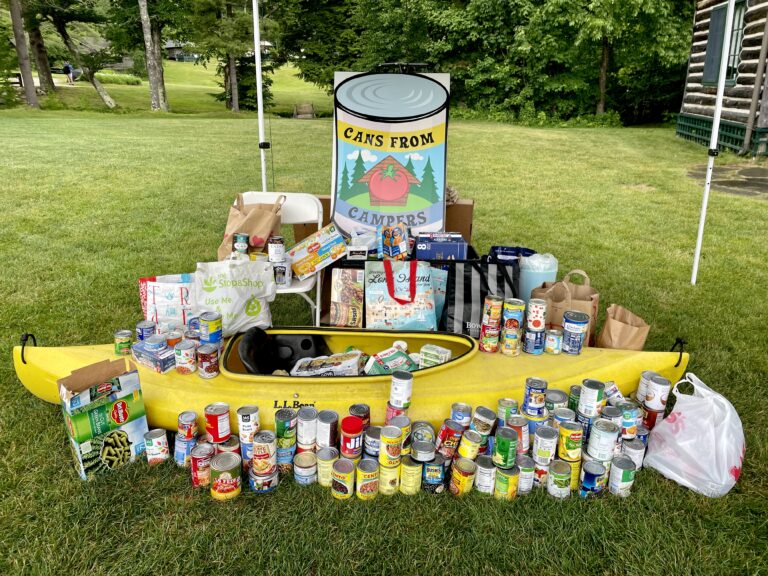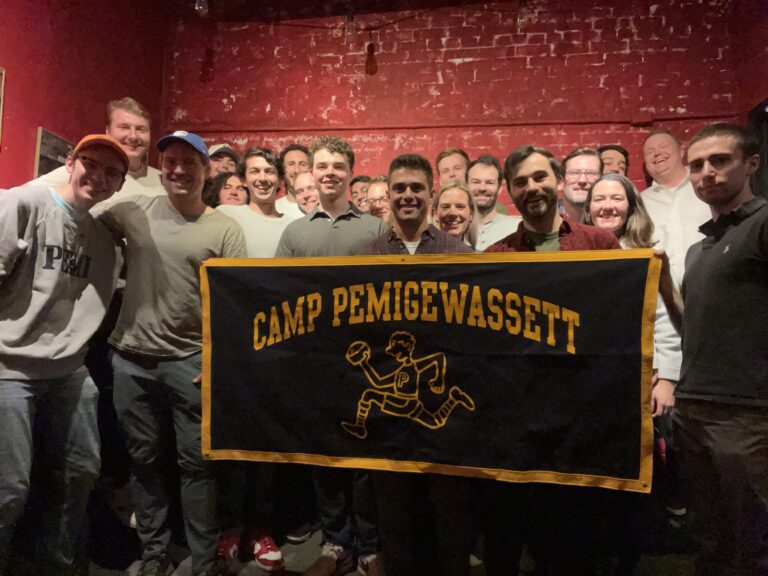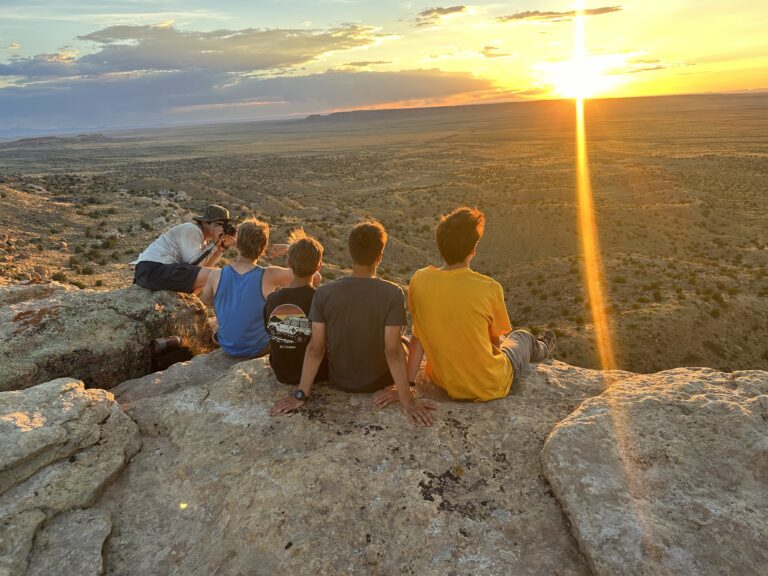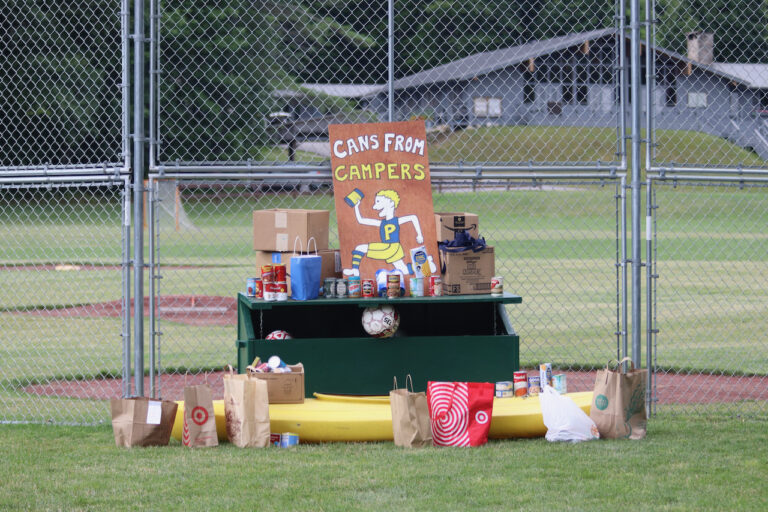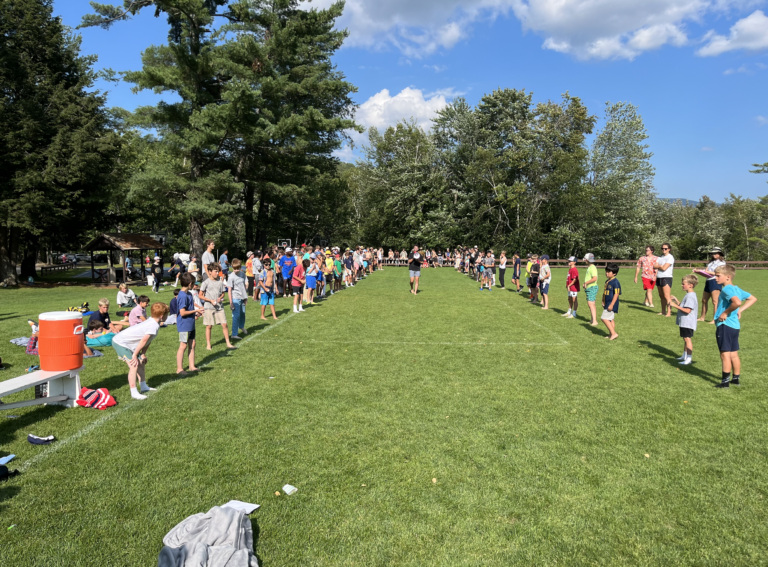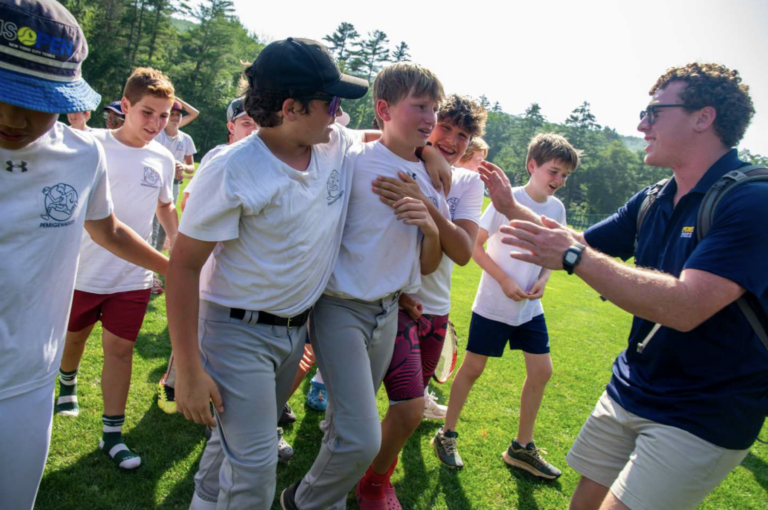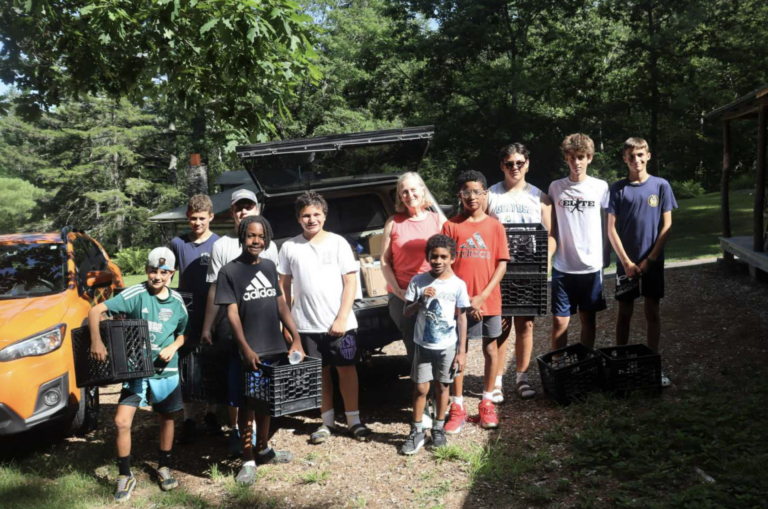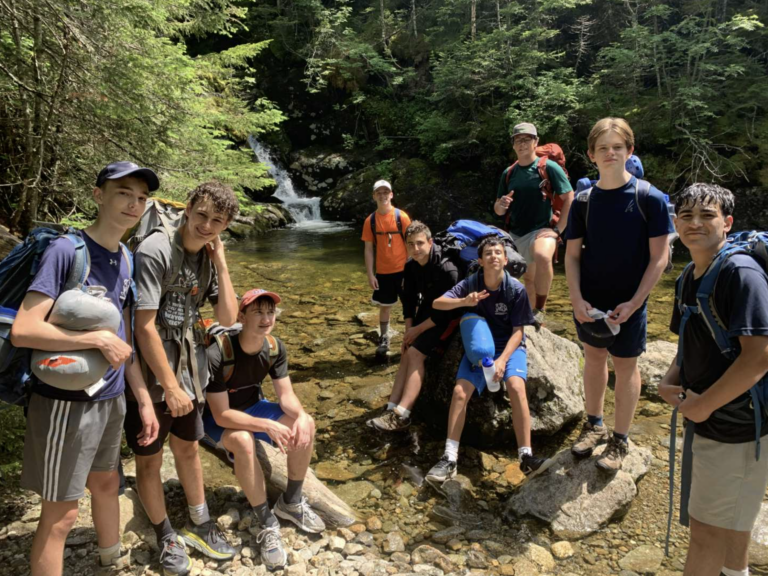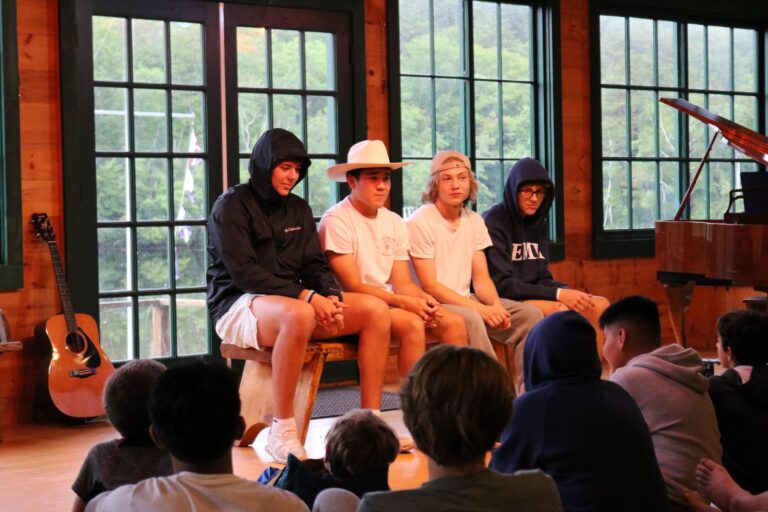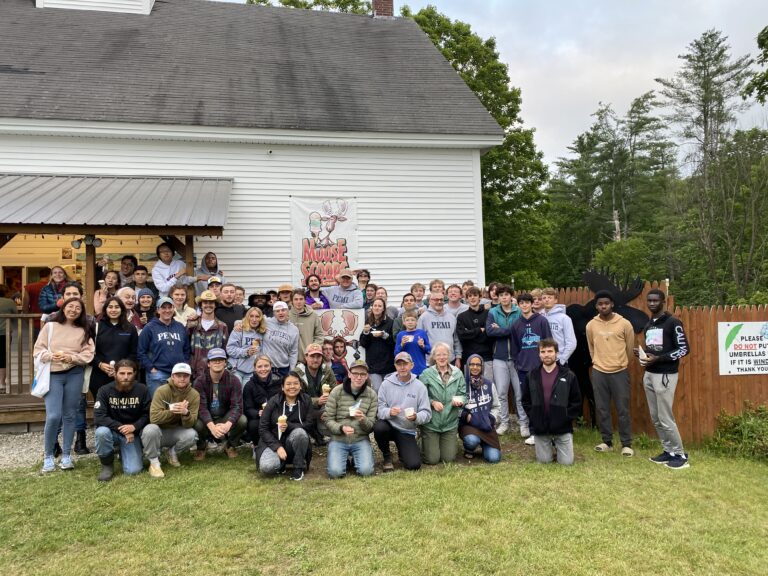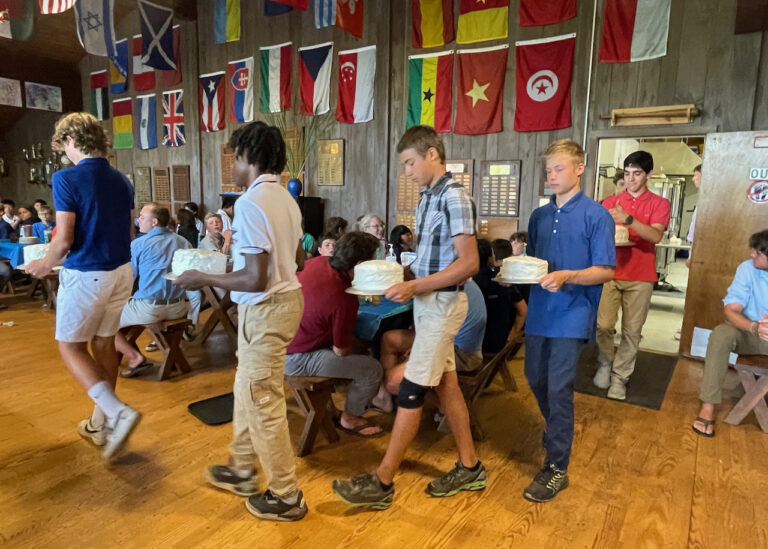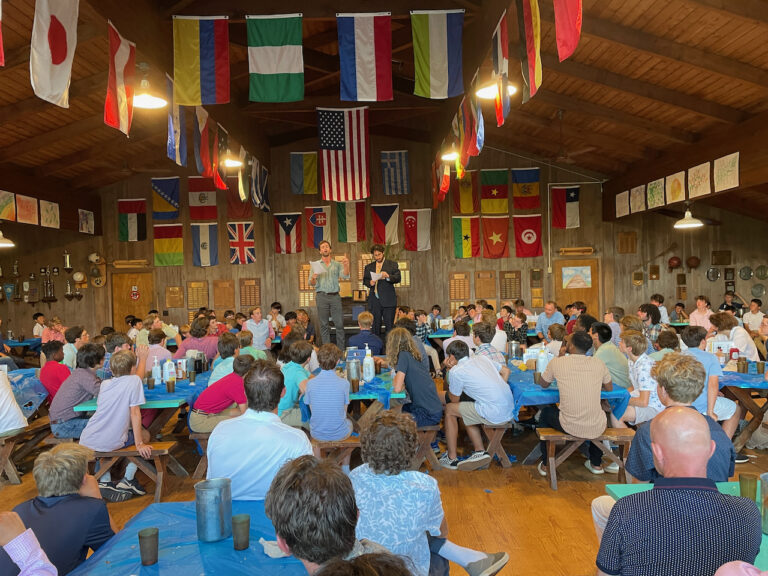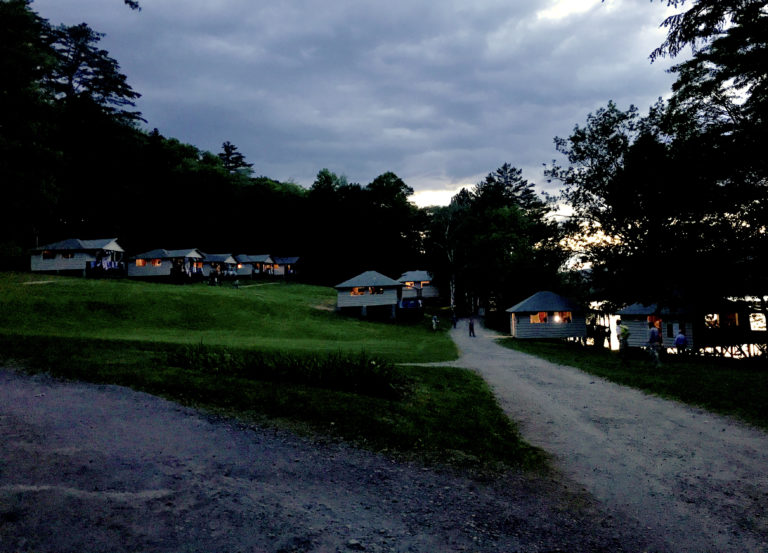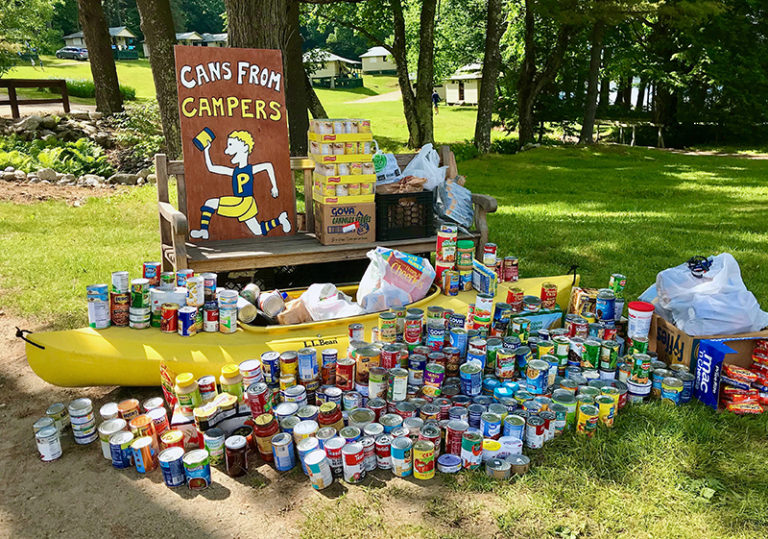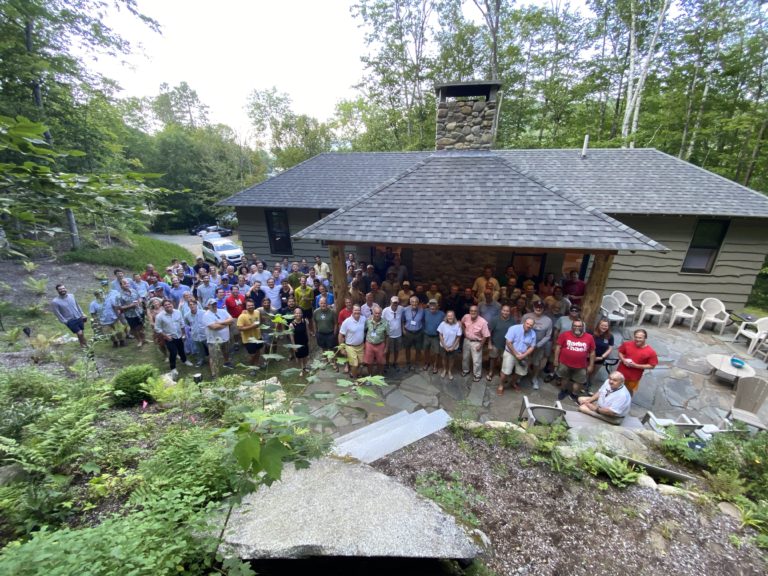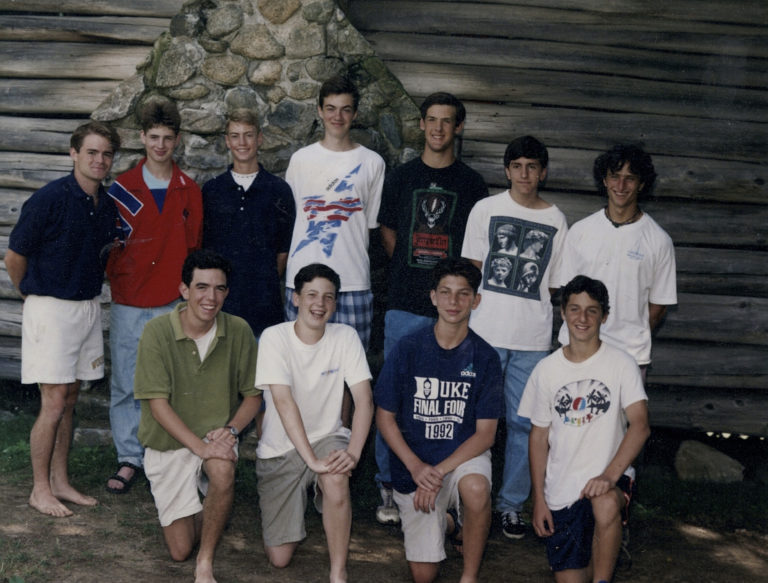- Education at Pemi
- Resources for Parents
PEMI TUITION SPECIAL: 2 for the price of 1!
How the Pemi experience benefits parents, too.
Sorry. My title used a marketing ploy to get your attention. No, you can’t send two boys to Camp Pemigewassett for the price of one. But you can count on your son’s summer camp experience of gaining independence and your summer camp experience of strengthening your “letting go” skills as a legitimate 2 for 1 deal. See? Camp tuition really is a bargain.
 In spite of my opening tease, we don’t label a 3.5 or 7 week Pemi experience as a product for purchase, nor do we think of our parents as blind consumers. We like to imagine Pemi as an anchor for families in a fast-paced, hectic, and complex world; where boys, parents, and Pemi staff alike can discover skills and passions, engage in civic endeavors and sound decision-making, and recharge for the busy year ahead. We consider the Pemi experience as an educational investment with lifelong dividends, and Pemi parents as our partners.
In spite of my opening tease, we don’t label a 3.5 or 7 week Pemi experience as a product for purchase, nor do we think of our parents as blind consumers. We like to imagine Pemi as an anchor for families in a fast-paced, hectic, and complex world; where boys, parents, and Pemi staff alike can discover skills and passions, engage in civic endeavors and sound decision-making, and recharge for the busy year ahead. We consider the Pemi experience as an educational investment with lifelong dividends, and Pemi parents as our partners.
Today’s accessibility and immediacy of communication is a double-edged sword. But putting efficiency and safety aside (two undeniably positive outcomes), our digital world has handed parents yet a new challenge “to parent” effectively. Where once kids would relate their daily predicaments and how they found their way out of them after the fact, now they call Mom or Dad in the moment, and in most cases Mom or Dad is instinctively ready to offer the “right” solution. Opportunities for our children to think creatively, to sort through options, and to consider the most appropriate person to turn to for guidance given a particular situation are becoming scarce. One of the best parenting lessons I ever received was witnessing my sister-in-law respond to my 15 year-old nephew’s dilemma with a calm, “So what do you think you’ll do?” I was shocked at her response, as the answer was crystal clear to me. How could she not see and how could she then not tell him what to do? What unfolded was a give-and-take conversation where my nephew came up with multiple options and, with his mom’s help, sorted through the merits and pitfalls of each, eventually arriving at the solution that made the most sense. As challenging as it can be not to cut right to the chase in this busy world in which we live, guiding rather than managing allows children and young adults to develop their own inner compass and to be invested in the outcome of their own decisions. However, we hear more and more of young people who land safely at the college gates, only to struggle mightily with uncertainty and a lack of the resilience necessary to navigate this major life transition.
Where does Camp Pemi fit into this? For one, our Mission Statement includes the line: For parents at home, Pemi offers support and guidance, sets clear policies, and communicates honestly and dependably as parents navigate the essential art of “letting go.”
We like to think that many of the policies and procedures that we have in place support this goal. Our “seasoned parents” can probably add to this list, but here are a few of the ways in which Pemi offers parents their own summer camp experience of gaining life skills:
• Blast emails, our web site, Facebook page, and our blog are perfect platforms to post information and recommendations on articles and books that support effective parenting. Many of you have written to say that you’ve pre-ordered Homesick and Happy, which is being released this May. (And while we’re at it, you might also pick up Letting Go with Love and Confidence: Raising Resilient Teens in the 21st Century. FYI – don’t wait until your son is a teen to get this!)
• Our 35-page Parent Handbook has an extensive section on “Communication” that includes our policies, and in most cases, why we’ve chosen to put them in place.
• The pre-season Parent Questionnaire asks, “What goals do you have for yourself for when your son is at camp?” It is easy to get so wrapped up in the busy lives of our children that we forget the importance of taking a step back and looking after ourselves. We hope this question inspires you as you plan for the precious 3.5 or 7 weeks that your son is safely ensconced at Pemi; whether that takes the shape of enjoying in a new way a younger child, taking those piano lessons you’ve been talking about, or relaxing with your partner on a well-earned getaway. I chatted recently with Dr Ethan Schafer, child psychologist, past Pemi camper and staff member, and recent recipient of an ACA award for his significant contributions to the camp profession. “For some reason,” Ethan said, “parents fall into this guilt thing, like they aren’t supposed to enjoy themselves if they’re doing something without their kids. They seem to forget that they had lives before they became a parent. What better way to get children thinking about their own future than by showing that you make time for—and are excited by—your own interests?”
• This next one is hard. We ask parents not to help unpack and not to make up their son’s bed for him on opening day. “But he doesn’t know how!” “He won’t know where things are!” “How do I know he’ll be able to sleep?” Please know that we understand. With over 100 years of experience, though, we see this “handing over of the reins” as a pivotal, visible sign of trust in both Pemi and in your son, though this gift to your son can be a tough pill to swallow. We hope our explanation in the Parent Handbook helps: When you arrive at the cabin, take as much time as you need to meet your son’s counselor and speak with him. We ask, however, that you depart quickly once your son’s baggage has been delivered to the cabin, and we request specifically that you do not help him unpack and make his bed. His counselor is eager and prepared to do this. Unpacking and making his bed is your son’s first opportunity to bond with his counselor and cabin mates, and it will greatly enhance his initial adjustment to let this occur.
• Some camps upload photos multiple times a day, every day, and others even have web cams installed on their property. They hire several professional photographers who comb the grounds taking photos, stopping kids to get their names and checking them off a roster. Another set of folk then tag the photos with names so that just those photos of their child go into a parent’s online account so they needn’t look at any other photos. This drip-feed of photos leads to anxious parents glued to their computers at home, refreshing the screen hourly in order not to miss a glimpse of their child. Wow. Seems to me that at the end of camp, a camper who returns home with newfound confidence and independence (if he’s able to get to that point with cameras around him all day), will only be reunited with parents who are still stuck in communication-dependency mode! We KNOW how much you miss your son and how you ache to see him! This is why Pemi purposefully uploads photos on a dependable schedule, every Thursday and Sunday, so that you know when new photos are available, and more importantly, you might be motivated to engage in something else (perhaps some of those personal goals you’ve determined from the questionnaire?) on those built-in “off” days. We upload photos without tags and without captions, because our goal is to convey a sense of all that is going on at camp (and to which your son has access), and because it’s “okay” not to know every detail. We’ve heard repeatedly on our post-season parent-surveys that while they were disappointed on occasion not to see their son in the photos, our parents could sense the warmth of the Pemi community in the images, appreciated having a concrete schedule for viewing the photos, and that once camp was over and their son was home, that they had a meaningful time together looking through the photos, using the photos as inspiration for their son to convey all the details and thus be the authority of his own experience. Patience is a virtue?
 • As mentioned above, we use a wonderful photo system. But we opted not to activate the email system that allows parents and campers to send and receive emails. For one, we simply do not have staff who can spend the day receiving, printing, and distributing emails that 300+ individual parents might dash off to their sons. But more central to the decision, we support the writing process for both adults and children (and the US postal service)! Campers are required to write home once a week, and though campers can write whenever they have free time, we ask parents not to require their sons to write home every day (another one of those tough pills to swallow), as this pressure might lead to his feeling he must forgo spontaneous games or skip optional opportunities that are part of the rich camp experience. Instead, let him know you’ll look forward to his weekly letters and encourage him to take advantage of all that is going on at camp. (Parent Handbook). Just as important, we provide letter-writing tips in our Parent handbook and ask our parents to write and mail letters as well so that parents are modeling for their children what it is that we are asking of them. Again, Ethan Schafer had a professional take on this: “Email, by nature, is meant to be quick and efficient, but pausing to sit and handwrite thoughtful letters to your kid at camp says so much more. It’s important for the child, but it’s just as important, if not more, for the adult to take the time to make that happen.”
• As mentioned above, we use a wonderful photo system. But we opted not to activate the email system that allows parents and campers to send and receive emails. For one, we simply do not have staff who can spend the day receiving, printing, and distributing emails that 300+ individual parents might dash off to their sons. But more central to the decision, we support the writing process for both adults and children (and the US postal service)! Campers are required to write home once a week, and though campers can write whenever they have free time, we ask parents not to require their sons to write home every day (another one of those tough pills to swallow), as this pressure might lead to his feeling he must forgo spontaneous games or skip optional opportunities that are part of the rich camp experience. Instead, let him know you’ll look forward to his weekly letters and encourage him to take advantage of all that is going on at camp. (Parent Handbook). Just as important, we provide letter-writing tips in our Parent handbook and ask our parents to write and mail letters as well so that parents are modeling for their children what it is that we are asking of them. Again, Ethan Schafer had a professional take on this: “Email, by nature, is meant to be quick and efficient, but pausing to sit and handwrite thoughtful letters to your kid at camp says so much more. It’s important for the child, but it’s just as important, if not more, for the adult to take the time to make that happen.”
When faced with “letting go” while their boys are settled at Pemi, by and large, Pemi parents just seem to “get it” – they understand that a constant drip-feed of information, or being a virtual fly-on-the-cabin-wall, or anguishing 24/7 while their son is at camp isn’t healthy for anyone, and certainly won’t place them in sync with their son and his newfound life skills when reunited at the end of camp.
Each year, especially as pre-season questionnaires flow our way, we are reminded of the fortitude that it takes to hand your son over to the care of others especially when, at times, that can feel counter-intuitive. As always, it is an honor for us to be on this journey with you, and most of all, we appreciate your trust.
~Dottie Reed
PS – We strongly recommend Homesick and Happy: How Time Away From Parents Can Help a Child Grow by Michael Thompson.
“An insightful and powerful look at the magic of summer camp—and why it is so important for children to be away from home . . . if only for a little while. In an age when it’s the rare child who walks to school on his own, the thought of sending your “little ones” off to sleep-away camp can be overwhelming—for you and for them. But a parent’s first instinct—to shelter their offspring above all else—actually deprives children of the major developmental milestones that occur through letting them go—and watching them come back transformed.”



